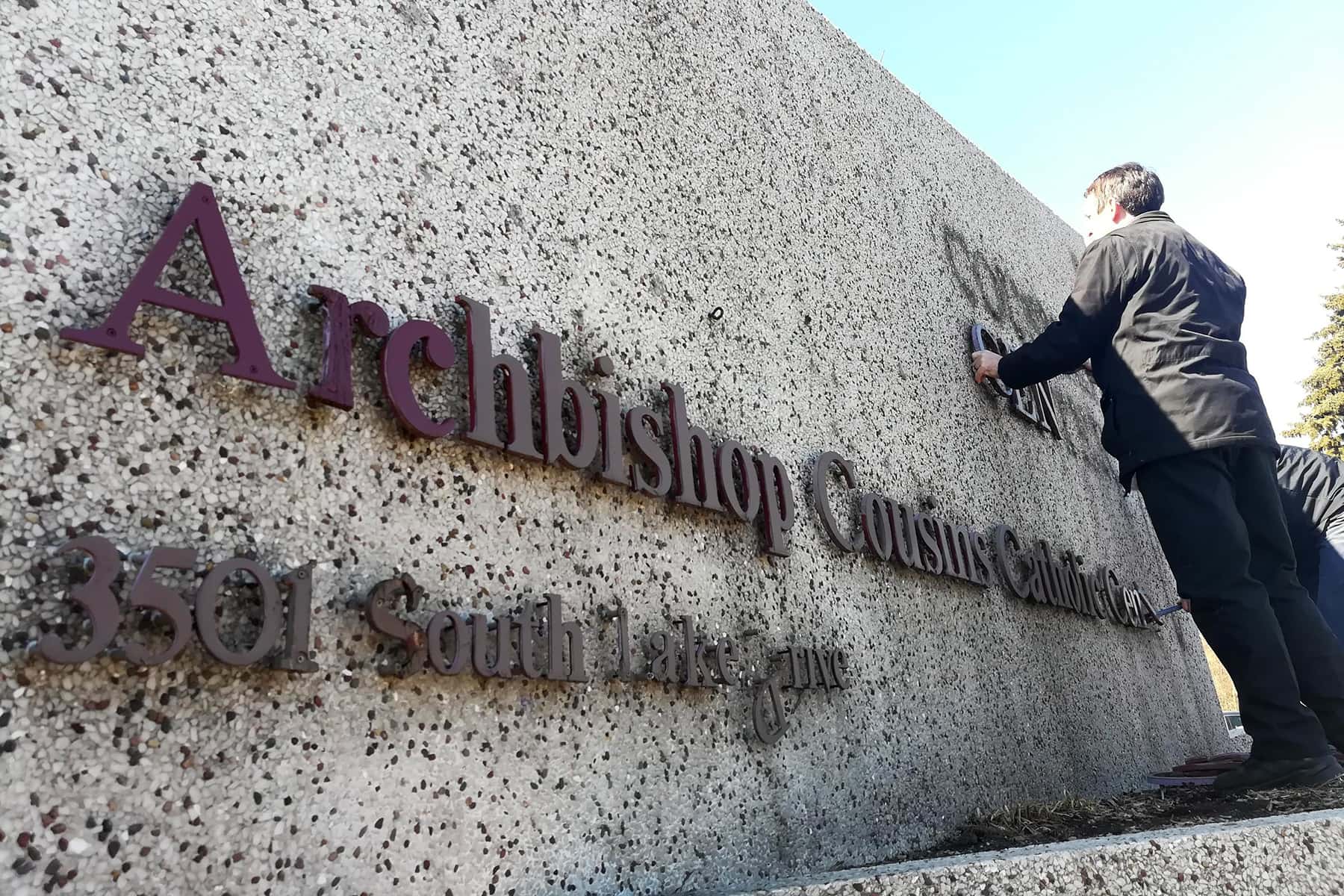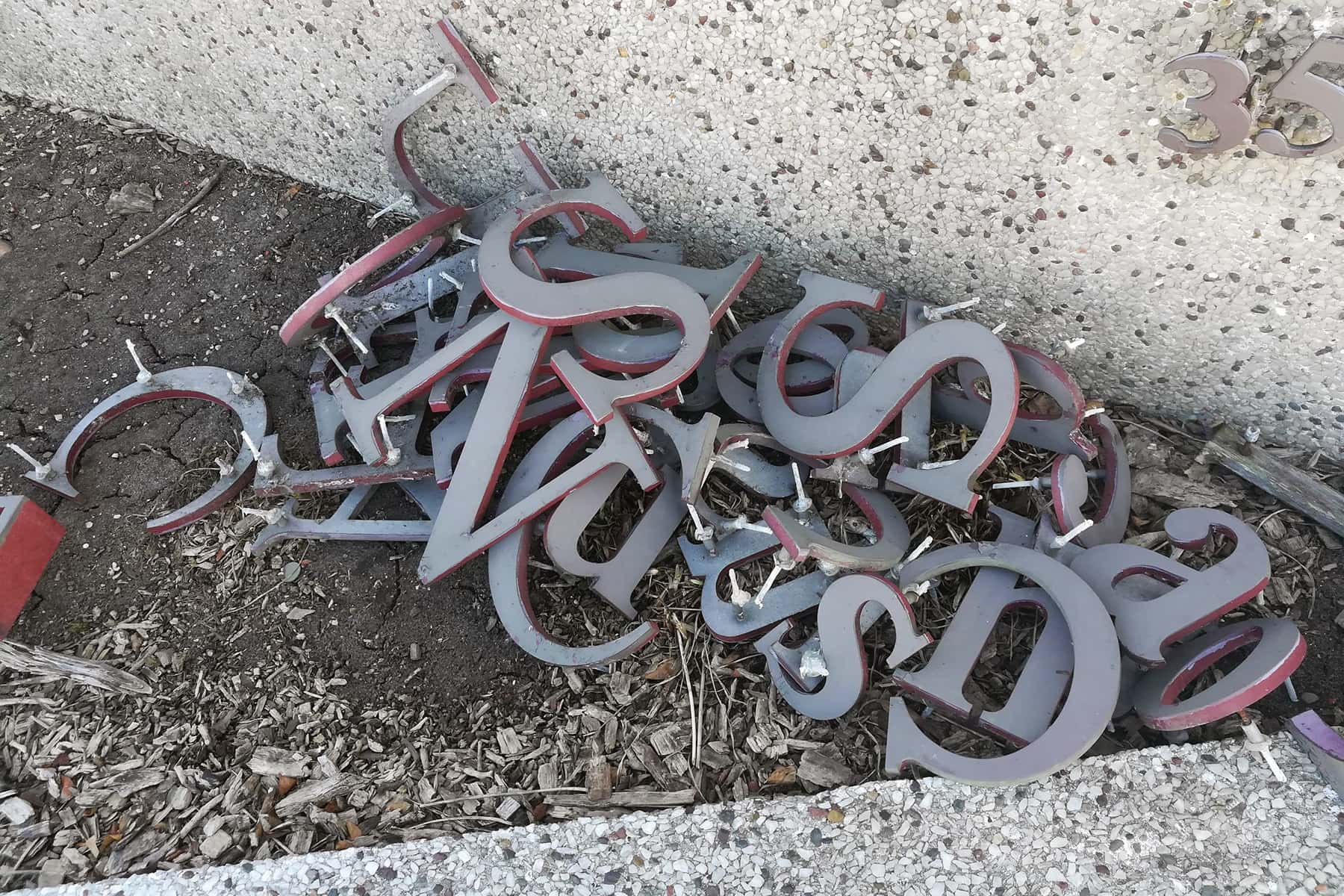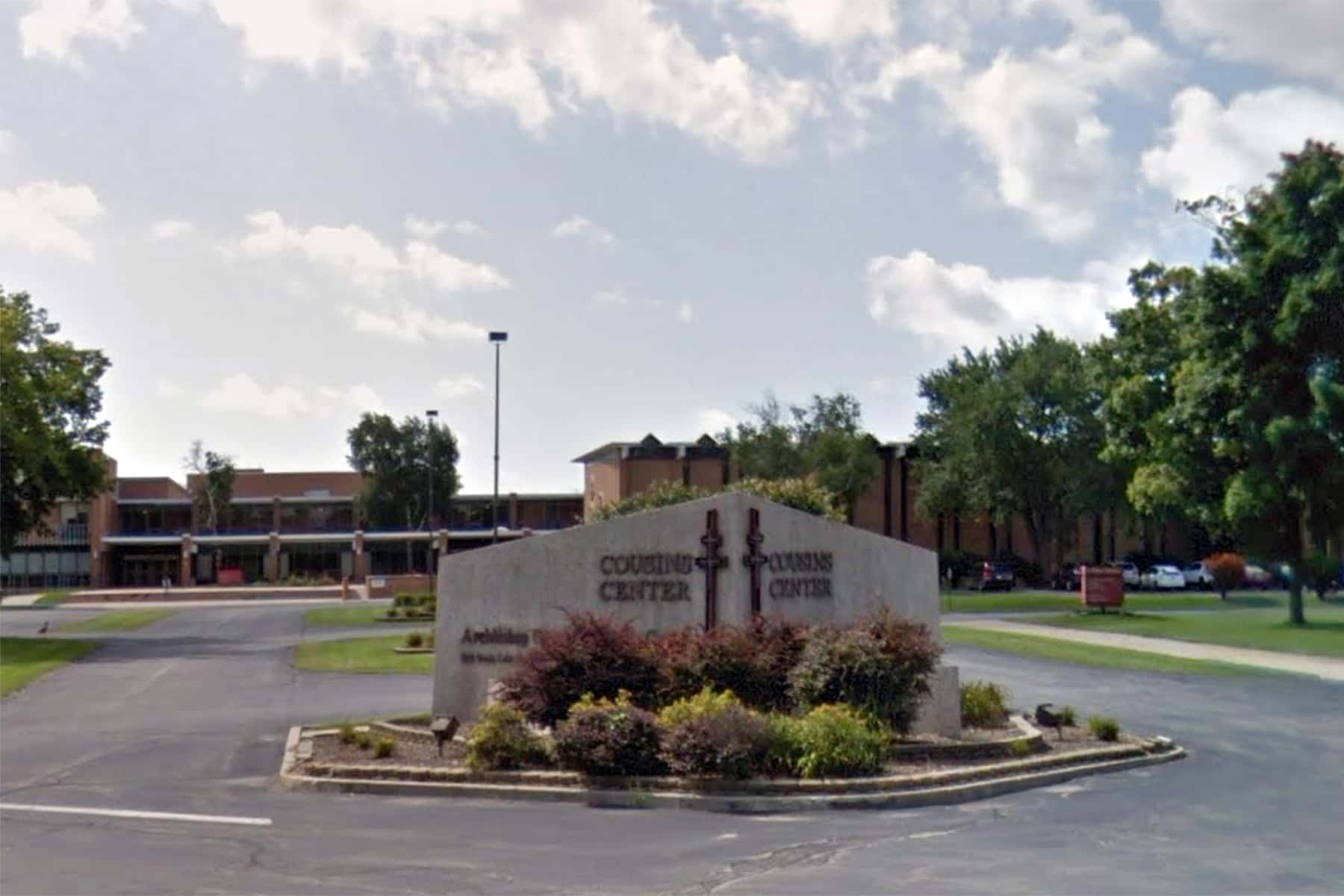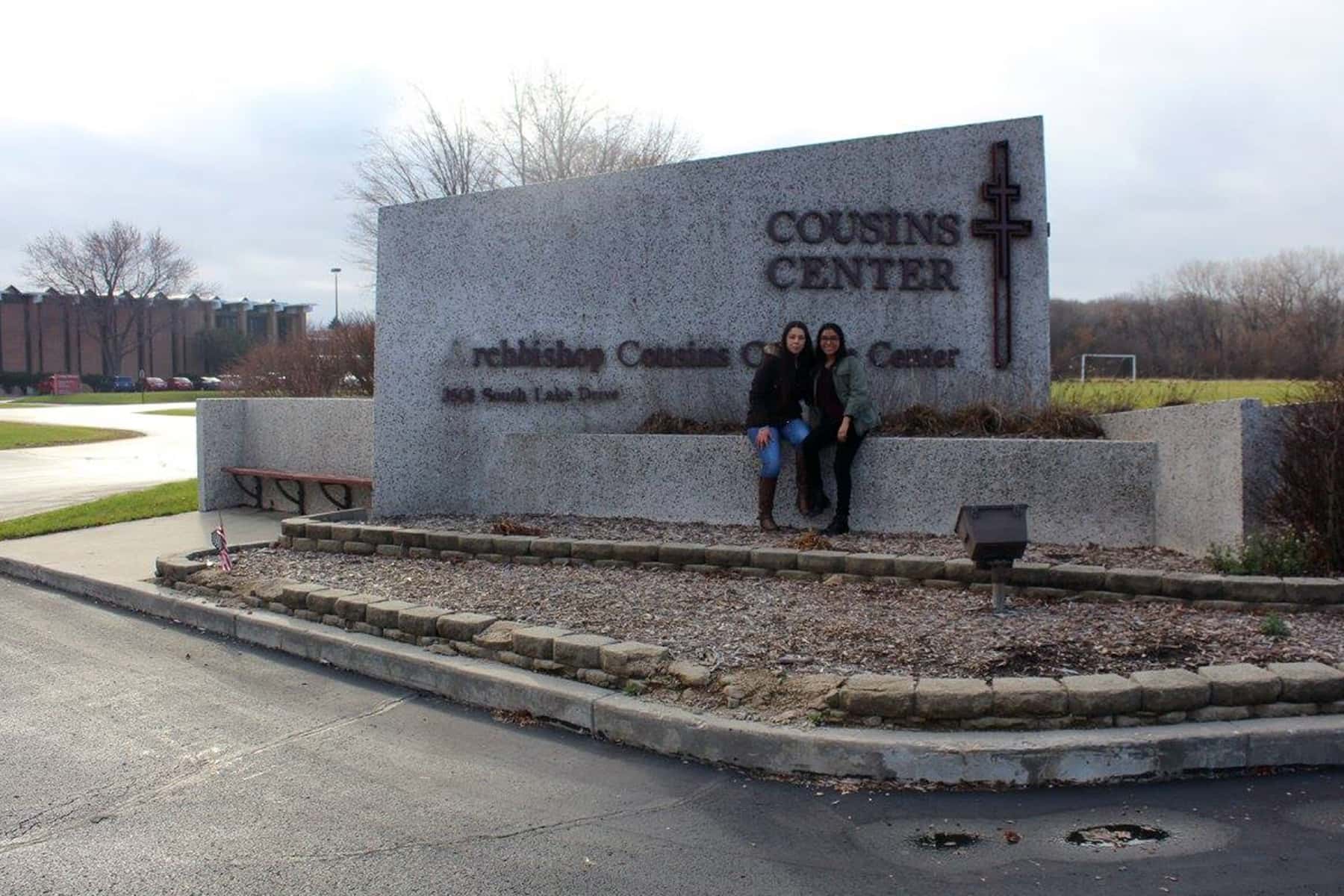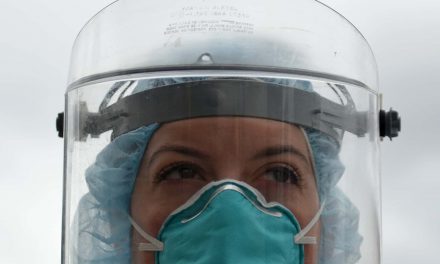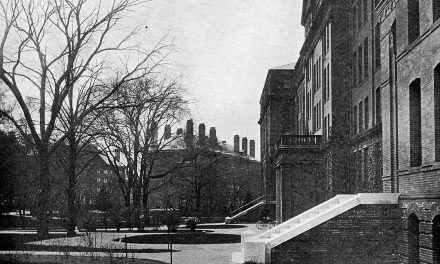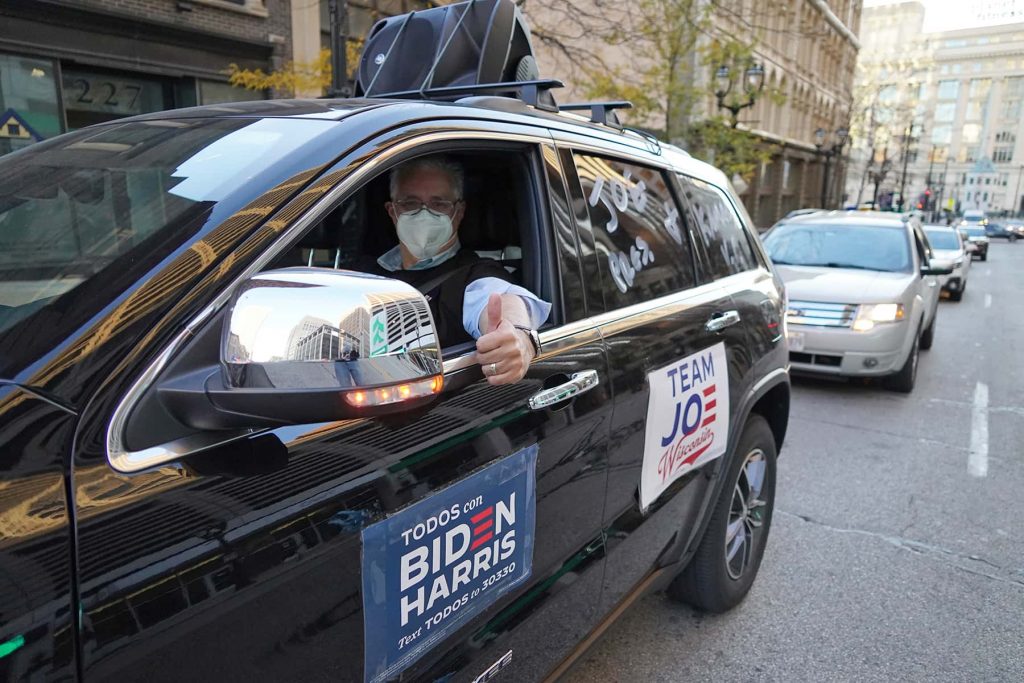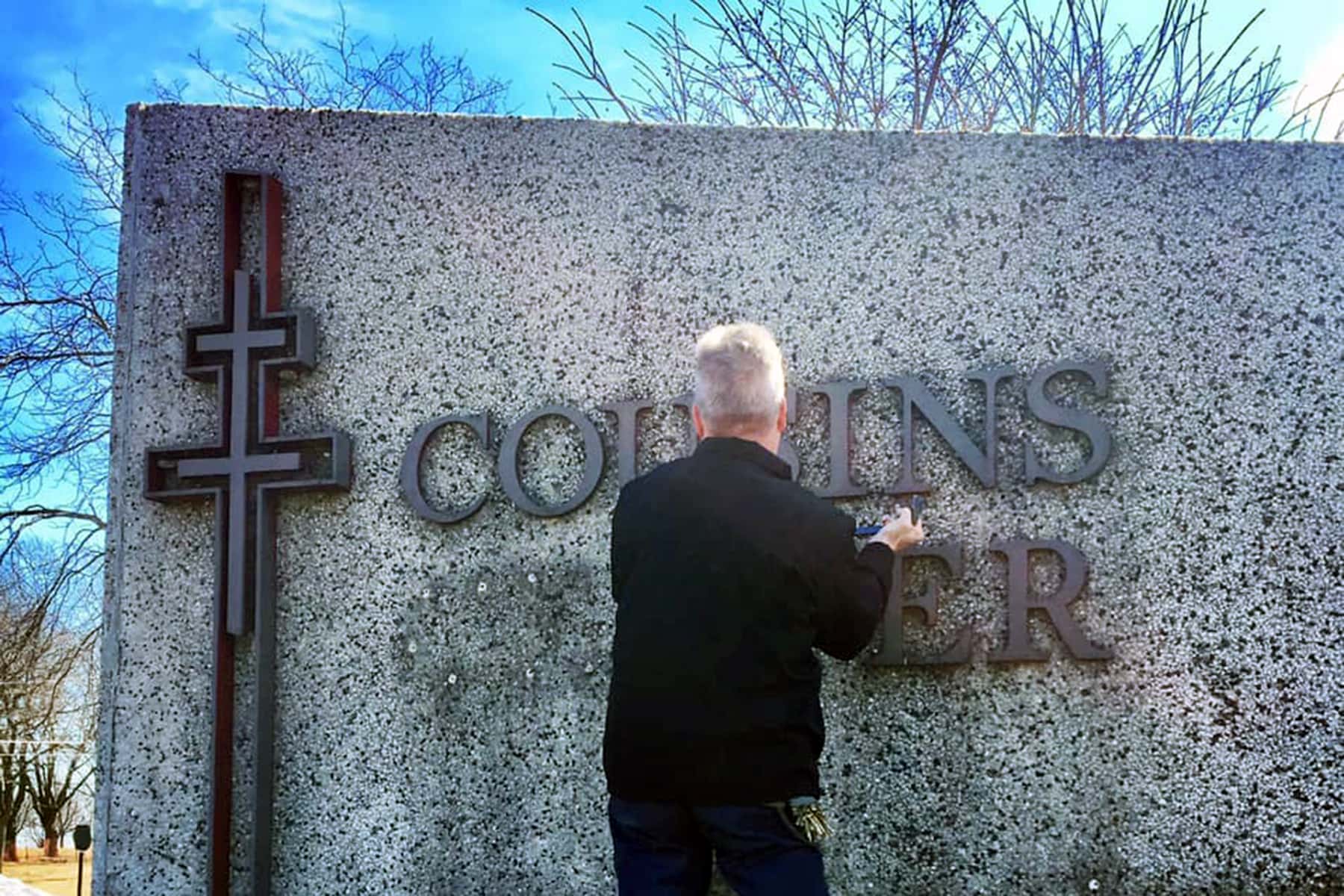
The Catholic Archdiocese of Milwaukee removed the names of two former Milwaukee Archbishops, William Cousins and Rembert Weakland, from buildings as part of the church’s response to sexual abuse by clergy on March 19.
The Archbishop Cousins Catholic Center, which was named in honor of William Cousins, will be renamed on Friday. And Rembert Weakland’s name has been removed from the parish center at St. John the Evangelist in downtown Milwaukee. Cousins and Weakland led the Milwaukee Archdiocese between 1958 and 2002 and helped cover up clergy sexual abuse of children.
“If these names have caused angst, anxiety, stress, hurt, harm for themselves, for their families, from those who have walked with them in this journey, as they have moved forward from the abuse they have experienced, then removing these names is something we want to do as a church and extend ourselves forward to reconcile whatever way possible with abuse survivors,” said Jerry Topczewski, chief of staff for current Archbishop Jerome Listecki. “This is a moment where we can say bishops share the blame very clearly in decisions that were made in the past. Again, not to keep judgment on what motivated those decisions, but simply to say if this helps in the healing of survivors then we want to do it.”
Topczewski said he hopes the name removals provide healing for victims. He explained that while the church cannot judge the decisions made decades ago, the role bishops played in the sex abuse scandal is clear. Topczewski said that the goal of removing the names was not to erase history.
“So if you go to Saint Paul’s outside the walls in Rome around the top of basilica is a portrait of every pope. You’d be hard pressed to say that every pope was without scandal over the church’s history, right? So we don’t want to change history, it’s part of who we are. So the images in the cathedral of all our archbishops will remain. But things that I think people thought were honorific we felt should be removed,” Topczewski added.
Peter Isley said it was about time. He is a member of the Survivors Network of Those Abused by Priests, or SNAP.
“You know we’re not going to have the name of bishops who have covered up for child rapists on our church building is the kind of minimal step that we’ve been asking for a long time,” Isley said. “You’ve got to take the names off of these buildings of bishops who have covered up child sex crimes. It’s kind of like not very good public relations, if I could put it that way, to honor and have the names of these bishops up on our headquarters and buildings.”
He felt the names are being removed now because Catholics and the general public are demanding change. Isley said that while the move is appreciated, if the Milwaukee Archdiocese really wanted to help right the wrongs, it would release the names of more than 100 clergy accused of abuse. He says those names are sealed in documents from the courts bankruptcy proceedings a few years ago.
“The only authority that anyone should have any kind of confidence in whatsoever at this point is law enforcement and the attorney general. And everywhere where they’re being investigated by the attorney general … let’s take Illinois as an example, what they have immediately discovered is that there are hundreds of name of accused clergy that have not been released,” Isley added.
On March 22, the Milwaukee Archdiocese unveiled the new name of the Diocesan offices in St. Francis. The location will now be known as the “Mary Mother of the Church Pastoral Center.”
“We’re looking really to restore trust — and that’s a long process,” said Archbishop Listecki. “When you violate a relationship and destroy that trust, what it takes is a constant reaffirmation of your willingness to open up for reconciliation and the seeking of forgiveness. In that sense, I continue to offer my apologies to those who have been abused. I have to do that.”
Lаtоyа Dеnnіs
Latoya Dennis and Catholic Archdiocese of Milwaukee
Originally published on Wisconsin Public Radio as Milwaukee Catholic Archdiocese Removes Names of Former Archbishops From Buildings
Wisconsin Public Radio (WPR) is a civic and cultural resource that exists to enlighten and enrich the quality of life for its listeners. Help support their mission with a contribution.

